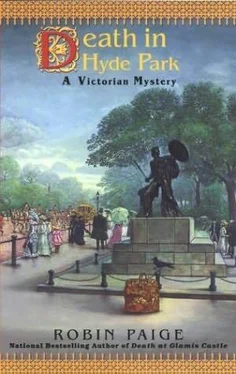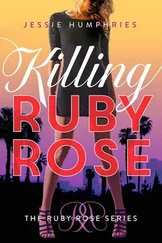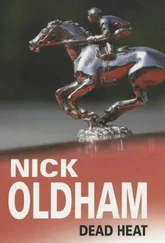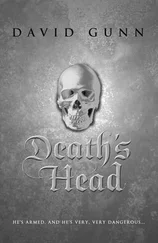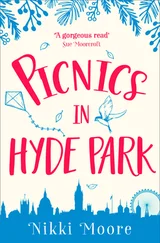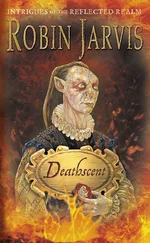Robin Paige - Death in Hyde Park
Здесь есть возможность читать онлайн «Robin Paige - Death in Hyde Park» весь текст электронной книги совершенно бесплатно (целиком полную версию без сокращений). В некоторых случаях можно слушать аудио, скачать через торрент в формате fb2 и присутствует краткое содержание. Жанр: Классический детектив, на английском языке. Описание произведения, (предисловие) а так же отзывы посетителей доступны на портале библиотеки ЛибКат.
- Название:Death in Hyde Park
- Автор:
- Жанр:
- Год:неизвестен
- ISBN:нет данных
- Рейтинг книги:5 / 5. Голосов: 1
-
Избранное:Добавить в избранное
- Отзывы:
-
Ваша оценка:
- 100
- 1
- 2
- 3
- 4
- 5
Death in Hyde Park: краткое содержание, описание и аннотация
Предлагаем к чтению аннотацию, описание, краткое содержание или предисловие (зависит от того, что написал сам автор книги «Death in Hyde Park»). Если вы не нашли необходимую информацию о книге — напишите в комментариях, мы постараемся отыскать её.
Death in Hyde Park — читать онлайн бесплатно полную книгу (весь текст) целиком
Ниже представлен текст книги, разбитый по страницам. Система сохранения места последней прочитанной страницы, позволяет с удобством читать онлайн бесплатно книгу «Death in Hyde Park», без необходимости каждый раз заново искать на чём Вы остановились. Поставьте закладку, и сможете в любой момент перейти на страницу, на которой закончили чтение.
Интервал:
Закладка:
And the body and soul of a woman, he thought with a little smile. He lay back on the wooden plank and let himself dream of Lottie.
A few paces down the passageway, Ivan Kopinski was also lying on his wooden plank. Jails were not new to him, and he had long ago learned that a man who exercised both his body and his mind during his imprisonment was far likelier to survive it than one who did not. Consequently, he allocated his time, alternately, between stretching exercises and running in place, and mental exercise. Just now, he was rigorously reviewing a certain period of his past, casting his mind month by month over the five years he had spent studying the writings and work of his mentor, Prince Peter Kropotkin. He found that he could name all of Kropotkin’s many writings, in the order of their publication, and could mentally compose a brief synopsis of each, including its major arguments. He could also recall where he had been when he read these, and what he had been doing, and how they had changed his thinking. It was an excellent exertion, and he smiled with satisfaction. During his next period of mental exercise, he would review the works of Bakunin, another of his teachers.
Ivan had lived in France while he was studying Kropotkin’s work. He had been employed as a printer’s apprentice and had spent all his spare time perusing Anarchist books and pamphlets with the passion of a zealot-and a zealot he was. As a very young man, Ivan had been seized by the Russian police for refusing to serve in the Czar’s army; imprisoned, he had refused to recognize the authority of his judges and jailers, and had been brutally beaten for his resolute nay-saying. The way out of prison had involved taking as hostage Georgi Fedorov-an important official, the son of Princess Fedorovna and the nephew of Grand Duke Gerasimov, a favorite of the Czar-and when Fedorov was shot by prison guards during the escape, a price was laid on Ivan’s head. He had fled to his village for a last farewell before leaving Russia forever, but there he discovered that his parents had been brutally executed by the police, in retribution for their son’s escape. Until then, he had been genuinely remorseful at Fedorov’s death, but this pitiless murder of innocents hardened him. There was nothing left for Ivan, as there was nothing left for so many dispossessed, dispersed Russians, but to stoke the flaming fires of hatred in his heart and vow to find a way to bring down the hated regime of the Czar.
And Anarchism seemed to offer that way. Living on his luck and by his wits in some of the filthiest slums of Paris, Munich, and Brussels, he had met many other comrades who shared his passionate views, his hatred of corrupt regimes, his fury at the ruling class. And at last, he met Kropotkin, a Russian nobleman who had repudiated rank and riches and become an uncompromising apostle of the necessity of violence as a means of destroying the old world and clearing the way for the new. This should be done, Kropotkin urged, “by speech and written word, by dagger, gun, and dynamite,” and when the revolution had come (Kropotkin calculated that it would take no more than three to five years), all governments would be destroyed, and all property would become the property of all the people. Each person would draw upon the community warehouses for food and goods according to his needs, and each person would work according to his talents, for the good of all. In such a world, there would be no greed, no oppression, no slums, no prisons-and no murder of innocents.
Ivan’s hungry soul had been fed by Kropotkin’s shining, inspiring dream. He knew that he was strong and dedicated enough to answer the stirring summons to “men of courage willing not only to speak but to act, men who prefer prison, exile, and death to a life that contradicts their principles.” These men of courage-and Ivan knew that he was one-would make up the advance guard of the revolution, prepared to act long before the masses were awake to the possibility of a new future. Men of strength like himself and Pierre and even Adam (although he was a trade unionist, and a reformer, and not an Anarchist). Women of strength, like Lottie, lovely Lottie, whom Ivan would have loved with all the fierce passion of his Slavic soul, had he allowed himself to do so. Lottie, whose mischievous smile and gay laugh so belied her firm will, her dedication to all that was right and just and noble. And then there was Yuri.
Still on his back, Ivan raised his right leg and began to flex it rhythmically. It was ironic, wasn’t it? He had considered himself in the advance guard, laboring to spread the Anarchist word through the pages of the Clarion, when all the time, unbeknownst to anyone, Yuri Messenko-affectionate, gentle, Yuri, a boy to whom no one had paid any special regard-had been plotting a revolutionary deed so bravely violent and so startlingly audacious as to bring credit to them all.
Ivan had been astonished when he heard what Yuri had done; he had been utterly dumbfounded, and he was dumbfounded still, as he thought about it. That Yuri would have the courage, the cleverness, the extraordinary commitment required to carry out such a singular act made him feel enormously proud, even as he shook his head over the amazing improbability of such a thing. He felt a sharp sense of loss, as well (although he reminded himself that this was unforgivably bourgeois), for he had allowed himself to love Yuri (to the extent that an Anarchist could feel love) for his gentleness and compassion. Ivan feared that he had never fully understood the boy, for at times Yuri seemed remarkably dim-witted and yet at other times exhibited a deeply intuitive vision. And he had certainly neither understood nor shared Yuri’s devotion to Pierre, that inflammatory fire-brand of a fellow who seemed to Ivan to be manipulative and devious in the extreme. But this had not changed Ivan’s fondness for Yuri, and while he saluted Yuri’s heroic act, he mourned the lost young hero.
But there were other problems upon which Ivan must exercise his mind. His defense, for instance. Mr. Morley, the solicitor who had been sent by the Amalgamated Society of Railway Servants to defend Adam, had refused to take Ivan’s and Pierre’s case, on the grounds that the ASRS was paying him to arrange the defense of one man, not three. Nicholas Petrovich, one of the few comrades brave enough to acknowledge any connection with their jailed colleages, had paid Ivan a visit the day before, bringing some cheese and apples-which were promptly confiscated by the guard. Nikki had come to let Ivan know that a solicitation was being conducted among the members of the Hampstead Road cell to collect the eight guineas required by Mr. Brownlow, a barrister who had defended other Anarchists on occasion.
“Brownlow is very sharp, we understand,” Nikki had said, in his thick Slavic accent. “If anyone can get you two off the charge, he’s the man.”
“ If the eight guineas can be found,” Ivan said dispiritedly. “That seems high.”
“I’m afraid it’s the charge,” Nikki replied in an apologetic tone. “If it had been anything else but explosives with intent, he would’ve come cheaper. But explosives-”
“Explosives?” Ivan had interrupted sharply. “How do explosives come into it?”
Nikki gazed at him as if he didn’t quite understand. “Why, the bombs,” he said. “In your room, and Pierre’s. Ginger-beer bottles with something in them-nitric acid, they say. Not to mention the Anarchist literature, and the bomb-making instructions found in Pierre’s pocket.” Admiration and pride were mixed with exasperation in his look. “The comrades said to tell you that they didn’t know that you were a Dynamitard, or that you and Yuri and Pierre were planning to blow up the King. If they’d known, they’d have said it wasn’t a good idea. Too dangerous all ’round.”
Читать дальшеИнтервал:
Закладка:
Похожие книги на «Death in Hyde Park»
Представляем Вашему вниманию похожие книги на «Death in Hyde Park» списком для выбора. Мы отобрали схожую по названию и смыслу литературу в надежде предоставить читателям больше вариантов отыскать новые, интересные, ещё непрочитанные произведения.
Обсуждение, отзывы о книге «Death in Hyde Park» и просто собственные мнения читателей. Оставьте ваши комментарии, напишите, что Вы думаете о произведении, его смысле или главных героях. Укажите что конкретно понравилось, а что нет, и почему Вы так считаете.
